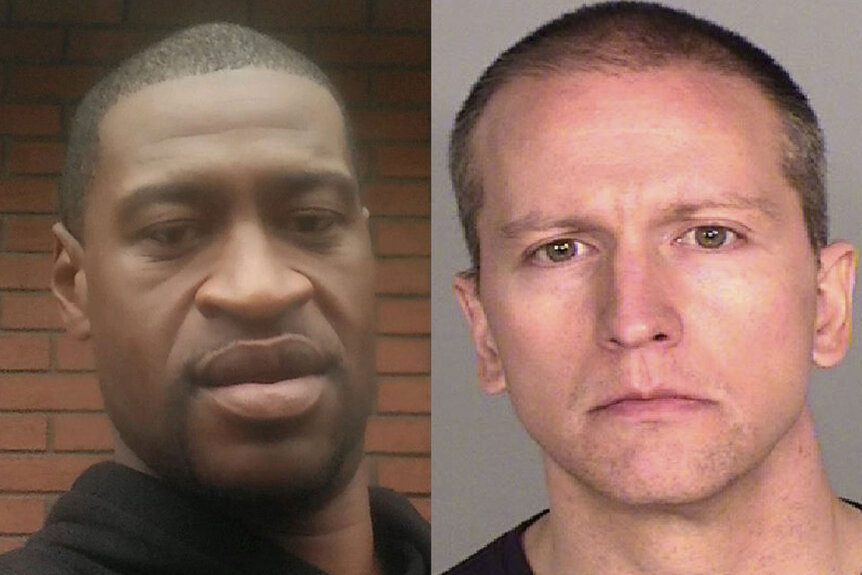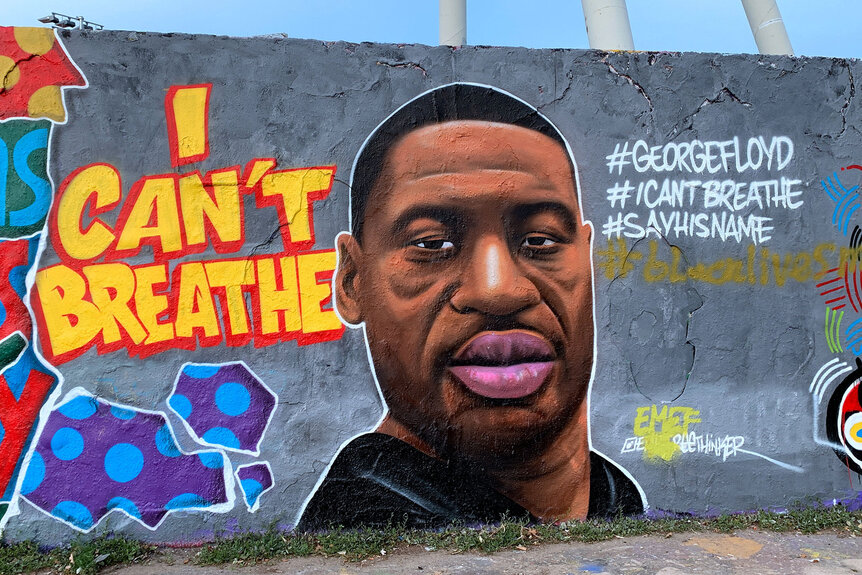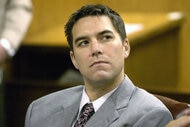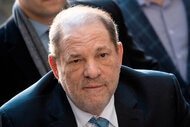Create a free profile to get unlimited access to exclusive videos, breaking news, sweepstakes, and more!
3rd-Degree Murder Charges Against Derek Chauvin Reconsidered Ahead Of Trial Over George Floyd’s Death
The proposed restoral of a third-degree murder charge against Derek Chauvin would provide an additional legal avenue to conviction.
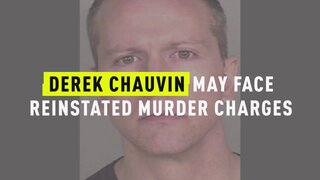
The Minnesota Court of Appeals heard oral arguments regarding the possible reinstatement of earlier murder charges against the former police officer accused in George Floyd’s killing.
Derek Chauvin’s lawyers sparred with Hennepin County prosecutors on Monday over the possible restoral of third-degree murder charges against the former cop. The proceedings came roughly a week ahead of when jury selection is slated to begin in the trial.
Chauvin is facing a second-degree murder charge for the killing of Floyd’s in Minneapolis in May. He was originally slapped with a less severe murder charge until last year when a judge opted to upgrade those charges.
Prosecutors are now seeking the reinstatement of third-degree murder charges — on top of the second-degree murder charge — giving jurors an additional conviction option.
“Prosecutors will always try to get as many charges as they can get in,” Dmitriy Shakhnevich, a constitutional law professor at John Jay College of Criminal Justice, told Oxygen.com. “They need to give the jury something to hang their hat on, in case they can’t decide on some of the more serious offenses.”
While second-degree murder is historically considered a harsher charge under the state’s current sentencing guidelines, both charges carry similar punishments — approximately 150 months in prison, according to Minnesota sentencing guidelines.
A third-degree murder charge could be easier to prove, too. Third-degree murder conviction typically requires proof of “depraved indifference,” Shakhnevich said, which examines the culpability of a defendant’s mental state rather than their intent.
“It requires a lesser standard,” Shakhnevich added. “You didn’t intend to kill somebody but your mind was in such a volatile state that is sufficiently serious to convict for murder.”
Earlier this month, Hennepin County District Judge Peter Cahill dismissed the state prosecutor’s previous attempts to reinstate a third-degree murder charge against Chauvin, citing a lack of probable cause, CBS Minnesota reported.
However, the recent appellate ruling in the case of Mohamed Noor, another Minnesota police officer, changed the situation. Noor's third-degree murder conviction in the 2017 shooting of Australian woman Justine Ruszczyk Damond was upheld, according to the Star Tribune. The ruling concluded that third-degree murder, as interpreted in Minnesota, is a “death-causing act” that isn’t necessarily attributable to a sole individual or party. Prosecutors said Noor's mental state met the legal definition of a “depraved mind.” Noor appealed the court’s decision.
That fresh ruling in February set a new precedent that’s now applicable to Chauvin’s case, prosecutors argued. The state also argued this week that it’s not permissible for a trial judge to override the court of appeals.
“We think that this is actually a really settled question,” state prosecutor Neal Katyal said. “It would mean district courts could ignore precedential decisions based on their preferred readings.”
By not reinstating third-degree murder charges against Chauvin, prosecutors argued that the trial runs the risk of triggering “chaos."
Chauvin’s lawyer, Eric Nelson, appeared Monday via teleconference to dispute the restoration of third-degree murder charges. No decision was handed down, but the Minnesota Court of Appeals panel plans to issue an expedited decision in the coming days, KSTP-TV reported. The decision may delay Chauvin’s upcoming trial.
Floyd died on May 25 after Chauvin kneeled on his neck for nearly eight minutes outside a Minneapolis convenience store after the 46-year-old had been accused of passing a counterfeit $20 bill.
Minneapolis police officers Thomas Lane, J. Alexander Kueng, and Tou Thao, the three officers who assisted in Floyd’s arrest, have been charged with aiding and abetting second-degree murder in Floyd's death. They’ve since been fired by the Minneapolis Police Department. All four officers will be tried jointly.
Floyd’s death ignited months-long protests demanding racial justice across the country, which at times descended into violence. In Minneapolis, a police station was torched in retaliation and a number of businesses were set ablaze.
As the officers’ trial inches closer, the Minneapolis courthouse where the case will be tried has been outfitted with barbed wire and concrete dividers. The images served as a visceral reminder of the chaos that gripped the city’s streets over the summer.
The City of Minneapolis approved a nearly $1.2 million budget to curtail the spread of online misinformation and prevent the possible outbreaks of riots that may arise during the upcoming trial, according to the New York Times.
In addition, the city planned to hire six social media influencers to disperse digital content, specifically geared toward Black, Native American, Latino, and other minority communities, officials said.
“The goal is to increase access to information to communities that do not typically follow mainstream news sources or City communications channels and/or who do not consume information in English. It’s also an opportunity to create more two-way communication between the City and communities," Minneapolis City Council said in a statement.
The initiative, however, received pushback from advocates.
“The keyword here is ‘city-approved,” Toussaint Morrison told CBS Minnesota. “What do you think the message is going to be? It’s going to be pro-city, it’s going to be anti-protest.”
The city subsequently scrapped the influencer strategy, according to local station KSTP-TV.
Floyd’s family has also filed a civil lawsuit against Chauvin and the other officers involved in his death.
Last month, Chauvin and other officers accused in Floyd’s murder came under additional fire after a leaked video showed them mistreating and wrongly arresting an unarmed Black man, who they’d apparently mistaken for a suspect in a hostage situation in a separate incident weeks before Floyd’s death.
Jury selection for the trial is scheduled to begin on March 8.
